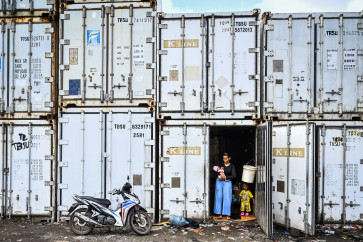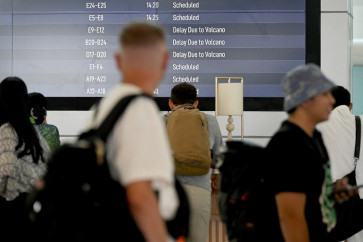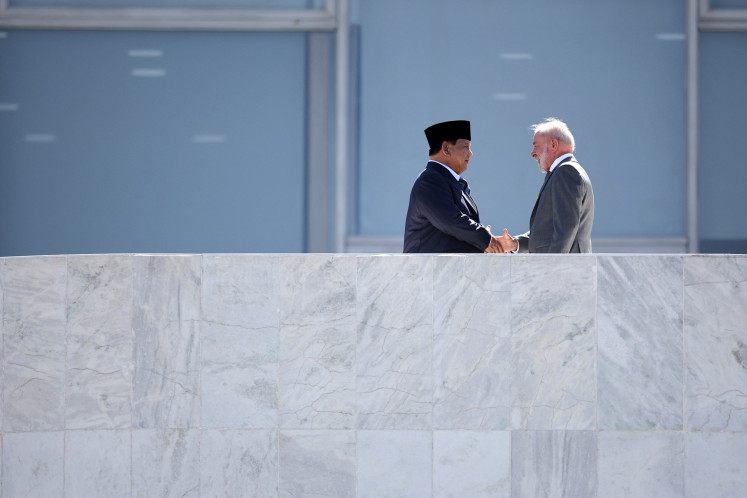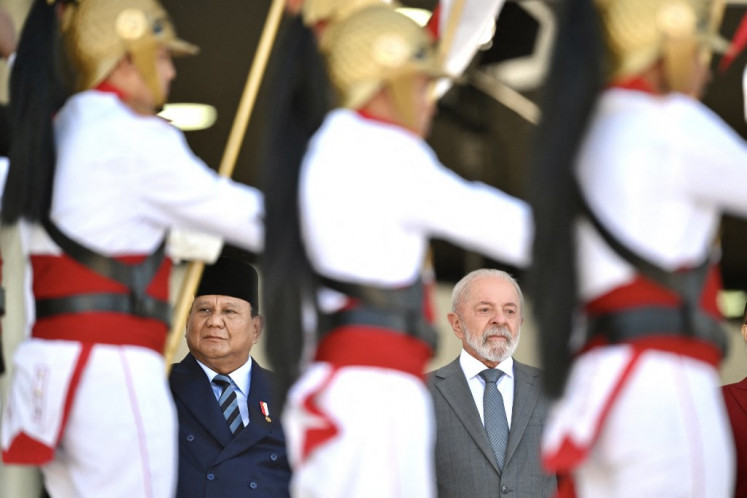Popular Reads
Top Results
Can't find what you're looking for?
View all search resultsPopular Reads
Top Results
Can't find what you're looking for?
View all search resultsAmid unresolved cases, Bawaslu aims for control over probes
The Elections Supervisory Agency (Bawaslu) is seeking greater power that would include the authority to open investigations into alleged election fraud amid its limited capacity to crack down on irregularities and violations during the 2019 general election
Change text size
Gift Premium Articles
to Anyone
T
he Elections Supervisory Agency (Bawaslu) is seeking greater power that would include the authority to open investigations into alleged election fraud amid its limited capacity to crack down on irregularities and violations during the 2019 general election.
The greater power, which would give the agency the authority to investigate the criminal aspects of election fraud and violations, would be included in the revision of Law No. 7/2017 on general elections.
Currently, the law states that the agency can only report such fraud to the Integrated Law Enforcement Team and cannot recommend sanctions to the court.
Bawaslu chairman Abhan said the proposed rule would allow the agency to replace the enforcement team as the sole establishment dealing with all criminal aspects of elections.
Therefore, in practice, the agency would employ its own investigators and prosecutors that could recommend sanctions against fraudsters.
Abhan said this policy was required since the law enforcement team, consisting of members of the agency, the National Police and the Attorney General’s Office (AGO), had failed to clamp down on the criminal aspects of election fraud because each member of the team had a different opinion on how to rule cases.
As a result, the enforcement team only recommended sanctions to 380 out of 2,152 cases of election fraud to the court, according to its data in November.
“The enforcement team comprises many agencies, so the decision-making process was not effective. We want the election law to be revised to make us as the only agency that handles all criminal aspects of election fraud and violations,” Abhan told reporters on Dec. 5.
He also said the new authority would give the agency the power to issue a Sprindik (letter ordering the start of an investigation) for election fraud cases, which currently can only be issued by the police.
To have such authority, according to Abhan, the agency should have police officers as investigators, similar to the Corruption Eradication Commission’s (KPK) authority.
Despite requesting greater control over election fraud cases, he also said the revised law should contain fewer articles on criminal sanctions considering the enforcement team’s poor track record.
Sixty six of the 573 articles stipulate different types of election fraud that could be given criminal sanctions. “Why do we have so many articles sanctioning severe election fraud if they are not effective?” he added.
The enforcement team’s national coordinator, Ratna Dewi Pettalolo, agreed that the supervisory agency should take control over the criminal aspect of election fraud from her team.
She acknowledged that the team had been unable to proceed with several cases pertaining to the last elections on account of disagreements between the agency, the police and the AGO, as each agency had multiple interpretations of several articles of the law.
Ratna cited a 2018 case against President Joko “Jokowi” Widodo’s campaign team in which her team found that the former had placed an advertisement in a newspaper ahead of the official start of the campaign period. The case did not proceed further because the team was unable to decide on the sanctions to be handed down.
Moreover, she believed that greater power for the agency could prevent biased recommendations for incumbent candidates.
Ratna said biased decisions could be made since the police and the AGO were not only members of the enforcement team but also part of the administration.
“We’ve had an internal discussion concluding that the agency should have powers similar to that of the KPK, so that the police and the AGO can act as our investigators and prosecutors in election fraud cases with criminal aspects,” Ratna told The Jakarta Post.
She said her team had submitted a proposal to the House to revise the law.
Association for Elections and Democracy (Perludem) executive director Titi Anggraini agreed that a considerable amount of unprocessed election fraud cases showed that the enforcement team was not capable of doing its job.
However, she said the issue would not be solved by giving the agency more authority since it could lead to abusive actions.
“It seems that government institutions always seek greater power as the solution for all of their problems. It won’t solve anything,” Titi said.
Instead of giving greater power to the agency, the problems should be overcome by simplifying the procedures in cracking down on the criminal aspects of fraud.
Titi suggested that the agency focus on taking care of administrative violations in elections and handing over its findings with regard to the criminal aspects of a fraud case to the police.
With the new concept, it is expected that people would be able to better evaluate the performance of both institutions in tackling election issues.
Her proposal would see the enforcement team dissolved.
Currently, the roles of Bawaslu and the enforcement team are stipulated in articles 93 and 486 of the law.
“We think that our scheme is much better, as each institution would maintain their individual duties while the public could also evaluate the commitment of each institution,” Titi said. (glh)










